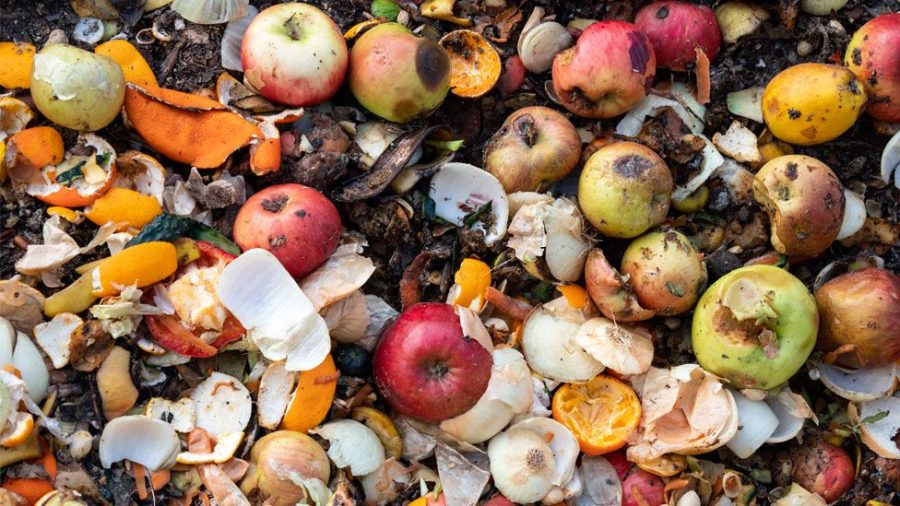“Feeding Bins, AND Bellies” in Benson Dining Hall: A Proposal to Berkshire School Administration
December 7, 2022
An overlooked issue plaguing the Berkshire School community is food waste in Benson Dining Hall. Considering how privileged the Berkshire community is when compared to the 34 million individuals in the United States who suffer from hunger, malnutrition, and other problems caused by food insecurity, we as a community should be grateful for what we have and stand together to make small changes to reduce food waste. Unfortunately, people throwing untouched food in the trash is a regular occurrence.
Even though the food that is thrown away will be composted, the underlying issue is that we are taking and wasting more than we need, which taxes natural and human resources and wastes all the energy, water, and labor it takes to grow, harvest, transport, and package the food on our plates. Thus, I propose that the Berkshire School administration should use an innovative strategy to motivate residents to reduce food waste.
The solution: We should put the compost to good use, and make sure we do not waste it. And by that, I mean people should start wreaking havoc on the compost. And by wreaking havoc, I mean devouring it – guzzling down handfuls of gently-rotting leftovers and binging on mouthwatering organic matter.
Firstly, by inhaling the decayed organic material mixed with loam and other appetizing ingredients, community members will get to enjoy the delicacy of a mixture of piping-hot fresh-on-top and stale-on-the-bottom decomposing food in the compost bin! If you’re lucky, you might get a fresh piece of barely-touched pizza doused in bang bang shrimp sauce, garnished with maggots. Mmm mmm mmm… Just think about the wide assortment of nutrients in your diet! Who could possibly resist such a rich variety of fiber, minerals, and vitamins? You get potassium from collapsing cauliflower, Vitamin A from melting melons, folic acid from mildly-oxidizing oranges, fiber from rusting raspberries, and protein from rotting roast beef!
I even ran an investigation to see how well-received this marvelous medley of nourishment is with members of the Berkshire School community to prove the validity of this solution to the Berkshire School admins.
“I barely had to chew my food! Such a blessing for those of us who have tooth problems and stomach issues!” A participant reported. Evidently, the scrumptious solution has steadfast supporters.
Even though some might be skeptical about this solution, overwhelming scientific evidence quells their doubts. According to pseudoscience organization ©Compost Consumption LC – a company dominating Forbes articles – contrary to over-processed food products, when you consume compost, you actually know what you’re consuming and putting into your body. Your stomach and colon will thank you!
Secondly, this solution teaches students to be resourceful and promotes a fun way for community members to collaborate – boosting school morale.
“My friend and I went diving in the compost and had some sick finds. We found like… hella silverware in there.” Says an ecstatic student.
This activity might be the most sustainable event since The Swap Shop. Additionally, spontaneous compost-diving creates a new activity that can be added to the Saturday recreational activities roster, alongside cornhole and dodgeball – a formidable form of entertainment for our students.
Thirdly, eating compost has compelling environmental benefits. After your body cycles it, the compost will be absorbed back into the ecosystem more easily, efficiently, and effortlessly than before. The improved quality of the compost has the potential to reduce and in some cases eliminate the need for chemical fertilizers. Additionally, it can also be used in the community garden to promote higher yields of crops. Just think about how the improved compost can help aid reforestation, wetlands restoration, and habitat revitalization efforts by improving contaminated, compacted, and marginal soils.
Therefore, people should start utilizing food in the compost bin to its full extent instead of letting it just sit there and decompose. Eating compost is truly a win-win in all aspects. Not only are we feeding the bins, but we are also feeding our bellies – a great renewable resource to gain nutrition and decrease food waste! I look forward to what the Berkshire School administration has to say about this!


